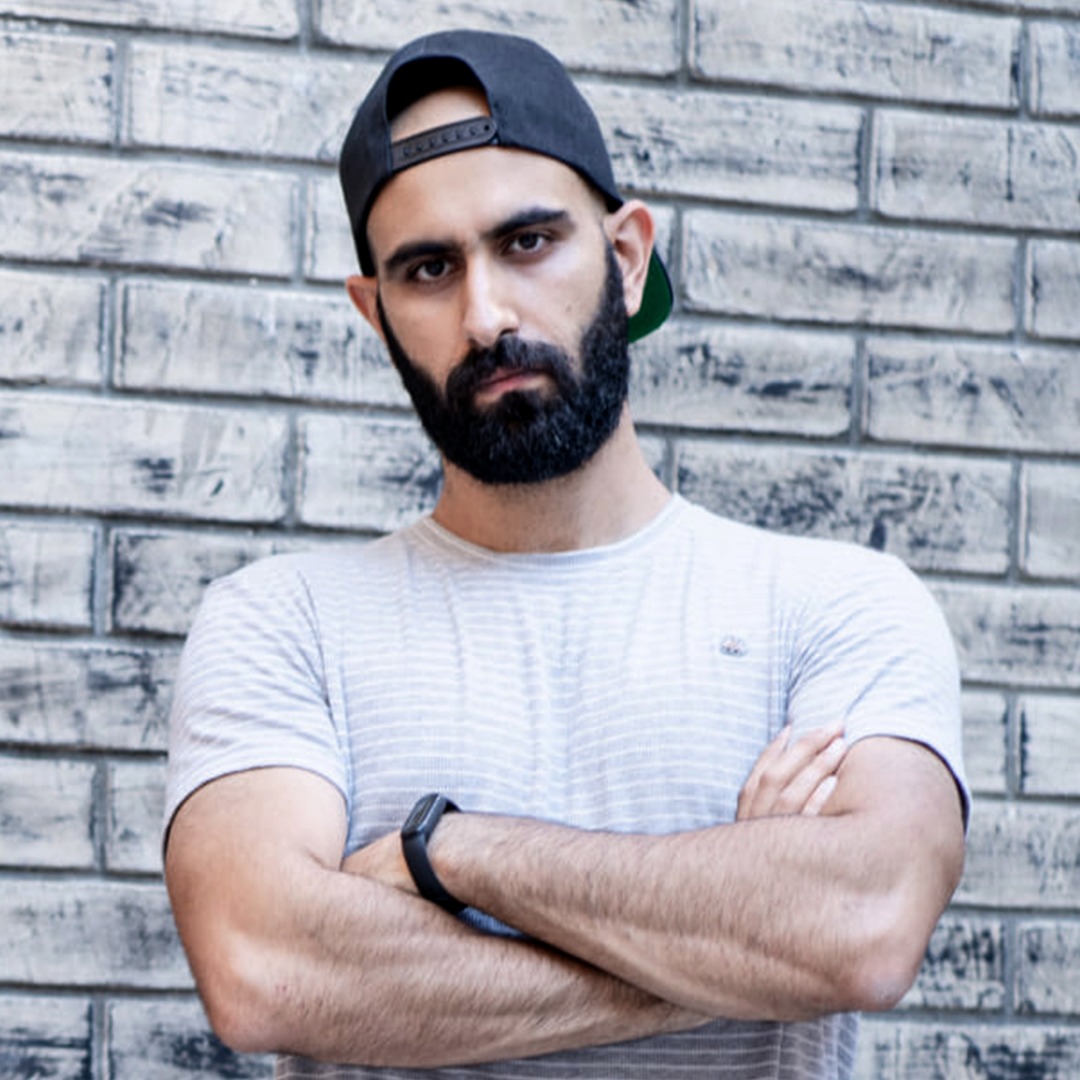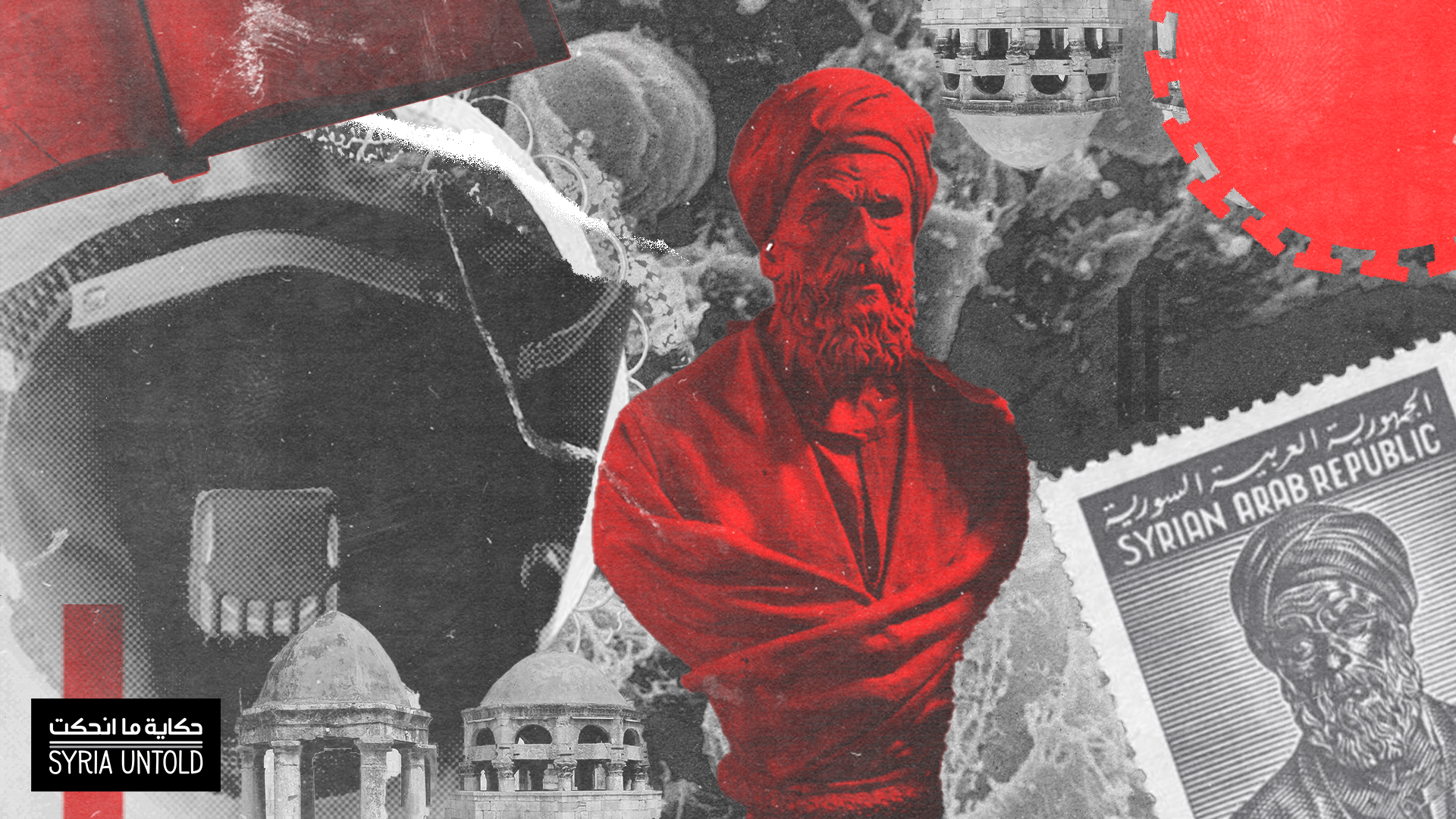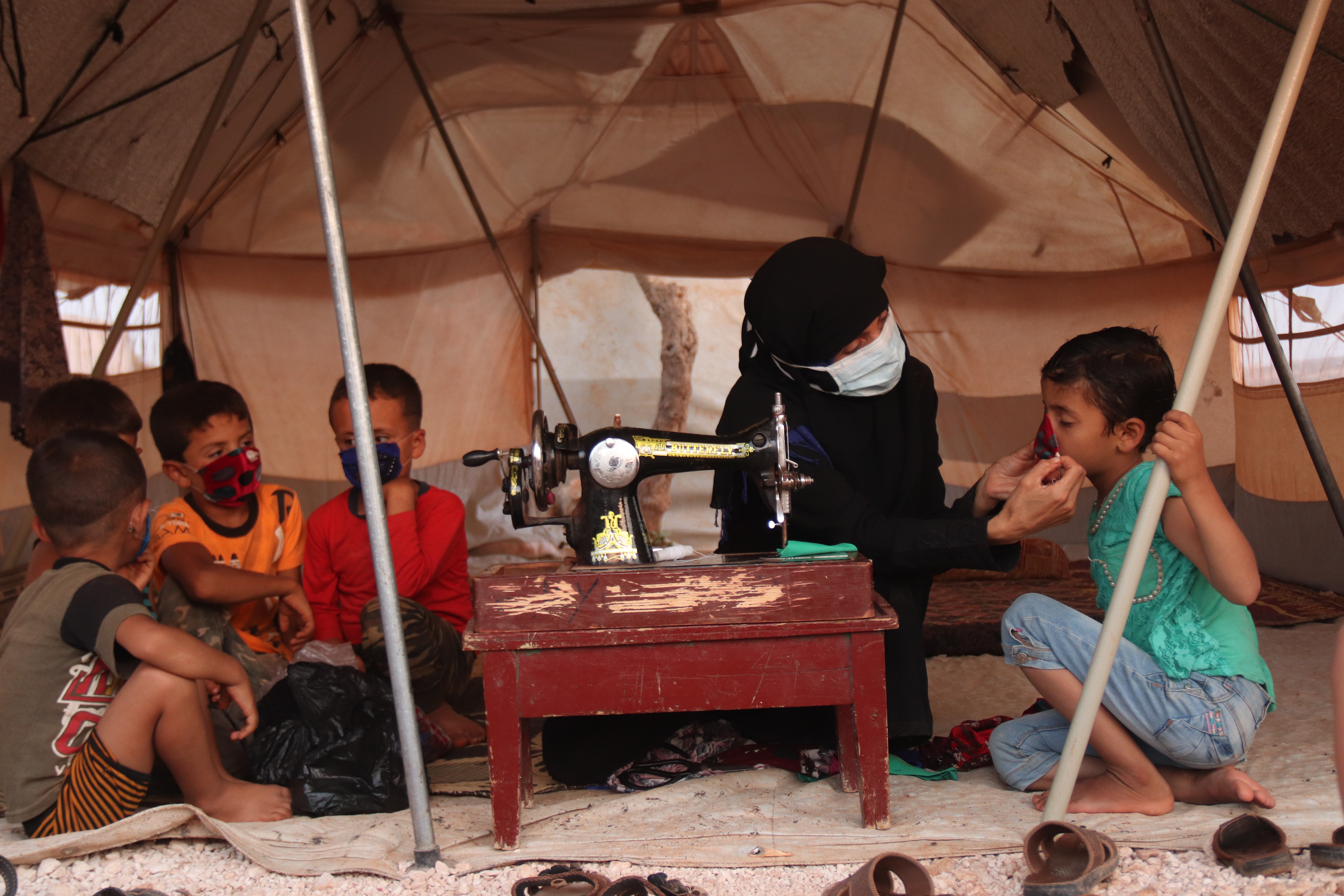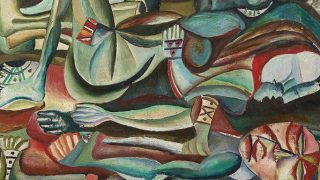SyriaUntold’s illustrator and multimedia editor Rami Khoury revisited Nur Turkmani’s essay from May on pandemics, the elusive medieval philosopher-poet Abu Alaa al-Maari and what we find when we go looking for wisdom from our ancestors. His picture story is below, with snippets from Nur's original written piece.
“The plague began in the land of darkness. China was not preserved from it. The plague infected the Indians in India, Sindh, the Persians and Crimea. The plague destroyed mankind in Cairo. It stilled all movement in Alexandria. Then, the plague turned to Upper Egypt. It attacked Gaza, and trapped Sidon and Beirut. Next it directed its shooting arrows at Damascus. There the plague sat like a lion on a throne and swayed with power, killing one thousand or more people daily and destroying the population.”
So wrote Ibn al-Wardi in the 14th century, before dying from the plague soon after. Al-Wardi, a historian from what is now northern Syria, was alive at a dreadfully unfortunate time, the Black Death thrashing through the world like a monsoon.
“Oh God,” continued al-Wardi in his 1348 Report on the Pestilence, “it is acting by Your command. Lift this from us. It happens where You wish; keep the plague from us.” Al-Wardi wrote his final words in Aleppo, not too far from his hometown of Maaret al-Numan.
During the earlier years of the Syrian revolution, protesters from northwestern Syria would flock to Maaret al-Numan for Friday demonstrations. But after years of regime bombardment, the town fell to renewed government control in early 2020. The recent videos I’ve seen of the city sketch it as a dilapidated landscape, haunted by its now fading revolutionary graffiti. Collapsed buildings litter it like seeds.
But, perhaps more than anything, Maaret al-Numan’s name sits on the shoulders of Abu Alaa al-Maari: the blind, anti-natalist, vegan, agnostic 11th-century philosopher and poet, born and buried in our embattled city and, of course, named after it. Writing three centuries before Ibn al-Wardi, al-Maari, I suppose, would have cursed at his descendants for their dying pleas. Why, he would wonder aloud, his huge frame shrugging, do my city’s people still believe that it is God, and God only, who can relieve them from this pain? Perhaps he may have written a treatise titled: God Has Nothing to Do with Your Plague, Please Stop Praying and Self-Isolate.
Psychologist and novelist Hala Alyan wrote in April 2020 that quarantine made her want to talk to those who came before her, those who lived through the Spanish flu pandemic; her great-grandparents and the generations who went through genocide and immigration. “Nowhere does our history exist more vibrantly than in those who lived it,” Alyan wrote. “I want to line up my ancestors. I want to know how they survived.”
The more I look back through al-Maari’s writings, the more I realize how contradictory a person he was. There are those who will argue that he was, in fact, a believer. Others will claim with just as much certainty that he was an atheist.
I still think al-Maari would have been frustrated with Ibn al-Wardi’s prayer to God amid a plague, and would’ve prescribed his own kind of treatise. Perhaps he would have brought in his followers and sat them around his feet to tell them that a god who punishes his people by sending a plague isn’t a good god. But that does not mean that he, too, wouldn’t have prayed in one form or another. Isn’t literature, the very enactment of it, the greatest form of prayer?
Al-Maari uttered what so many of those who came before and after him did, too: that there is perhaps no one meaning to life, that if there was, it is impossibly hard to find. But at the same time, when and if we can, we must dance toward it through words or movement or surrender. What a dreadful, potent responsibility.












